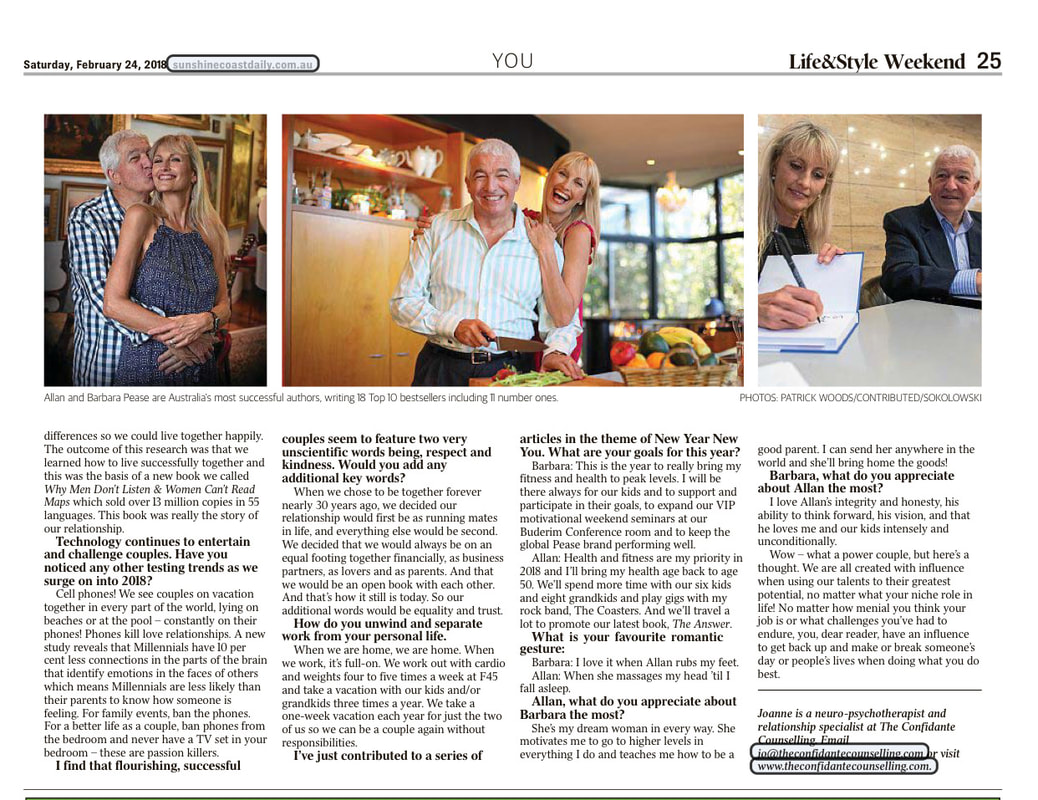 Quick show of hands, who likes criticism? If you raised your hand, I’m not entirely sure I believe you. Anyone who has been in a relationship can probably think of a few times when they’ve given their partner feedback only to have it explode in their face. Or, just as likely, been the one to blow up. Or, most likely, done both. In the same conversation. Feedback is something that is a lot easier to give than to receive, right? Great. Let’s take a look into how to make feedback easier to swallow. You can even try this on your boss! A “complaint sandwich” is basically a structure for your feedback (or criticism, complaint, gripe etc.) that will make it not only easier for the receiver to listen to, but inspire change. Or, at the least, not explode in your face. A complaint sandwich requires three ingredients: • A positive statement • The complaint • A second positive statement The biggest problem to receiving feedback is feeling attacked. With the complaint sandwich, the meat of the problem is wedged between two positive comments. This puts a structure around the complaint which makes it feel less like a personal assault and more like, well, feedback. You start with something you appreciate about the situation or person and end with reassurance to calm your stress responses. Now, if you’re thinking to yourself, “Great, next time he leaves the toilet seat up I’ll just say ‘John, you’re a wonderful father, but if you leave the lid up again I will leave, but beforehand burn everything you own. I really like what you’ve done with your beard.’” then I have some sad news: Yes, the complaint sandwich will make it easier to swallow. No, you can’t just say whatever you want to in the middle. That would be like biting into a sandwich and finding a cockroach in the middle. It’s still technically a sandwich, but you’re not going to be terribly happy about it. How to Make the Perfect Filling for Your Complaint Sandwich Prepare: Before you open your mouth, remember you’re speaking to someone you ‘love’ (unless they are your boss?). Consider the outcome you’re seeking. One complaint at a time. A complaint sandwich is best as a toasted cheese sandwich. Not toasted cheese and ham or cheese and tomato or with that braised beef from the tin I really like. Just cheese. Piling in multiple complaints together makes them all mash into one and contributes to the recipient feeling attacked. Stick to one issue at a time. Make it timely. When they’re already late for work or there’s man-flu, it is not the best time. Furthermore, avoid complaining about something that happened six months ago. You very well know the momentum a thought can get when you’ve stewed over it for way too long for it to boil over in an unrelated conversation. Courageously approach them whilst it’s still fresh in everyone’s memory. This is what I felt: Take responsibility for your own emotions. Avoid telling your partner what they are feeling (‘you’ talk) and speak about your feelings. For example, I feel hurt, happy, scared, frustrated etc. as compared to what you’d automatically want to say, “You’re lazy” or “You don’t seem to care.” Keep it civil. Try to remain as calm and even tempered as possible. Notice your tone, breathing, heart rate and any triggers from their expression. The goal of a complaint is to bring attention to an issue and try to get it resolved instead of trying to make them feel bad. It is more about what they did: Externalize the behaviour from the person. Describe exactly what you saw or heard and consider what would a video have recorded? Keep it simple and don’t make assumptions. For example, “I heard the door slam.” This is the meaning it had for me: We all interpret and perceive things differently. By saying ‘What I understood about this is…’ allows you to share your interpretation of the situation without accusing your partner. Ask for what you need: Make sure you tell your partner what you need that would help you feel better. You are entitled to respectfully make a clear request that can avoid the person feeling helpless as to what to do with your feedback. Forgive: Once you’ve communicated your thoughts and feelings, then invite peace with forgiveness. You’ve done what you can to make the situation better and now it’s time to let it go. With these tips, you’ll be on your way to providing — and perhaps even receiving — much more palatable feedback in the future. Jo is the Relationships Feature columnist for the Sunshine Coast Daily, weekly radio guest for Salt 106.5 and Psychotherapist of TheConfidante Counselling. Contact Jo on 0409909933 or [email protected] |
Joanne WilsonJoanne will be your Confidante, enabling you to speak freely in complete confidence and serenity. An integrated approach tailored to your specific needs will be utilised.
Categories
All
Archives
October 2023
|
Joanne will be your Confidante, enabling you to speak freely in complete confidence and serenity. An integrated approach tailored to your specific needs will be utilized. Approaches such as Psychobiological Approach to Couple's Therapy (PACT), Cognitive Behavioral Therapy, Solution Focused Therapy and Emotionally Focused Therapy may be incorporated.
Joanne WilsonRelationship Specialist for individuals and Couples online around the world and servicing areas for virtual sessions around Australia and servicing many clients in Queensland including Caloundra, Noosa, Noosaville, Buderim, Mountain Creek, Gympie.
|
Quick links |
|
Queensland - Australia
0409 909 933
www.relationshiprejuvenator.com
|
|
©
2017-2023 The Confidante Counselling . All Rights Reserved
Web Design by Debbie Navarro



 RSS Feed
RSS Feed









